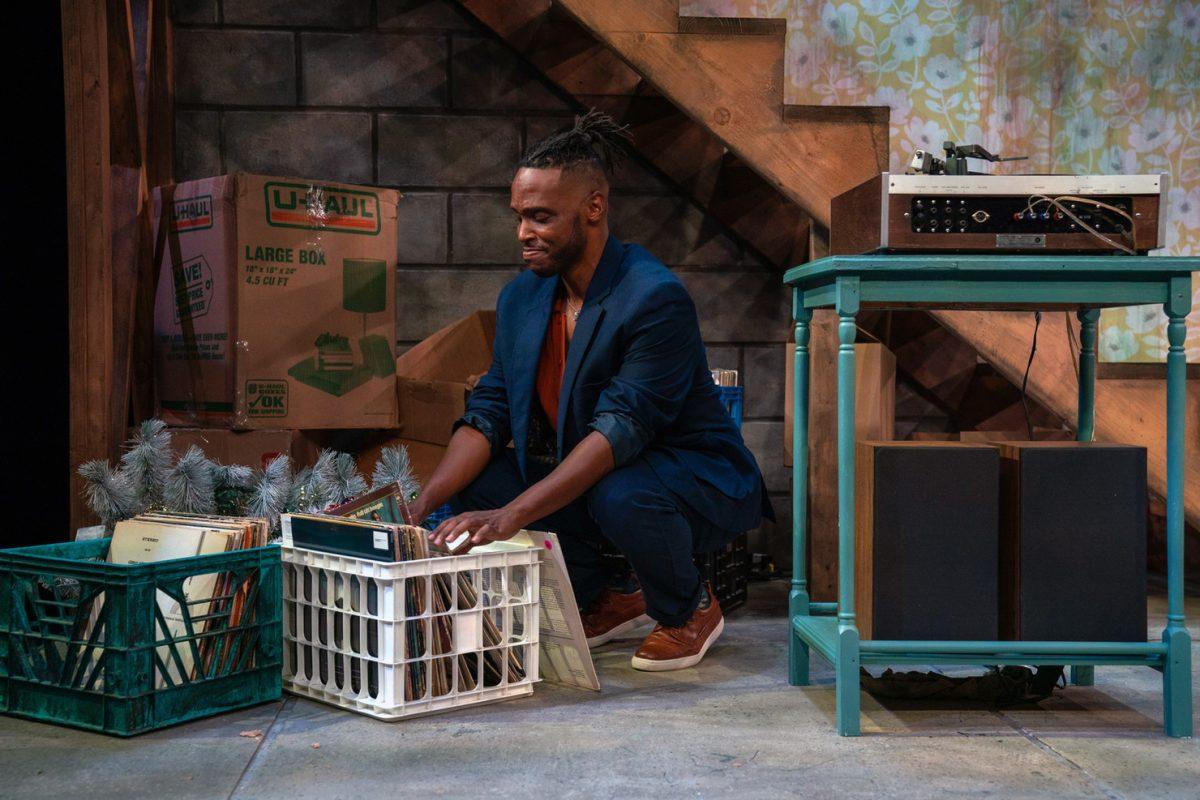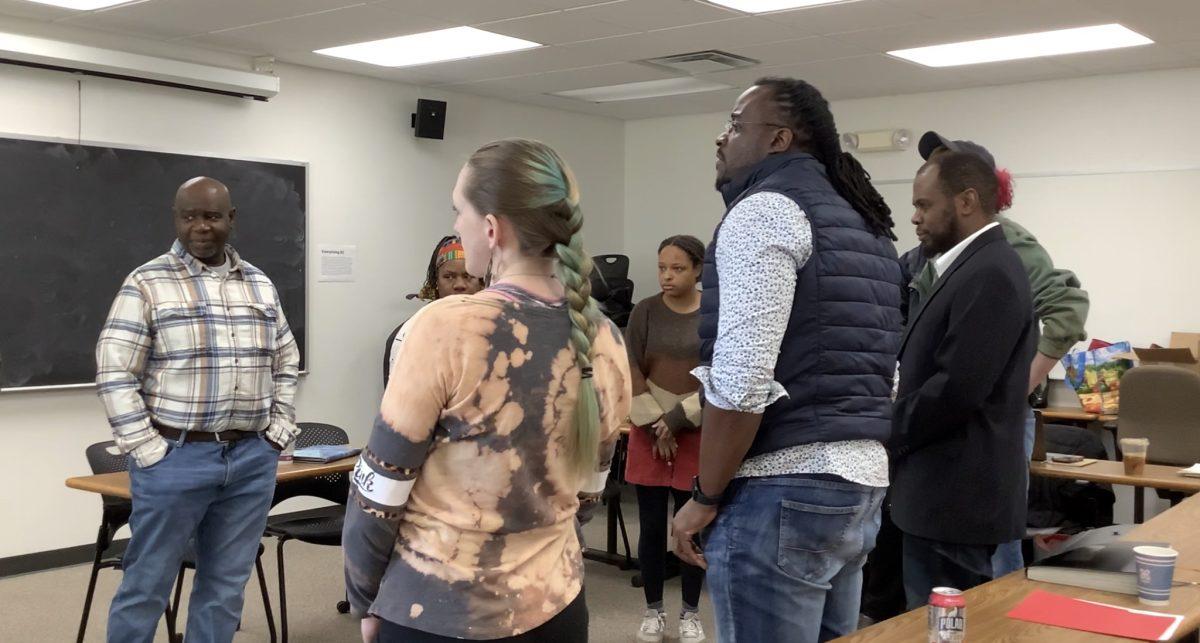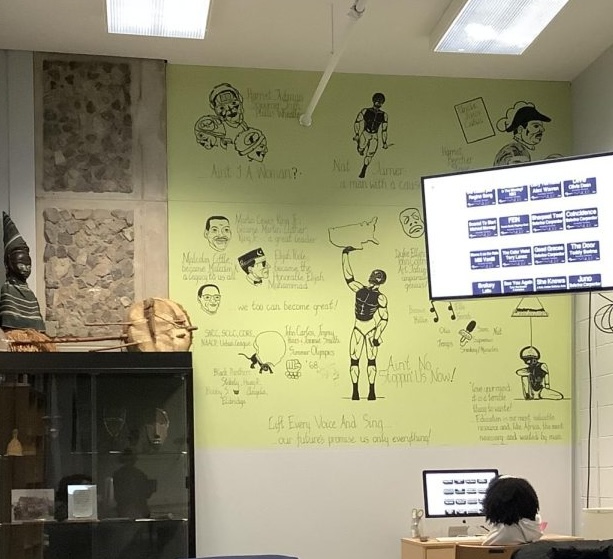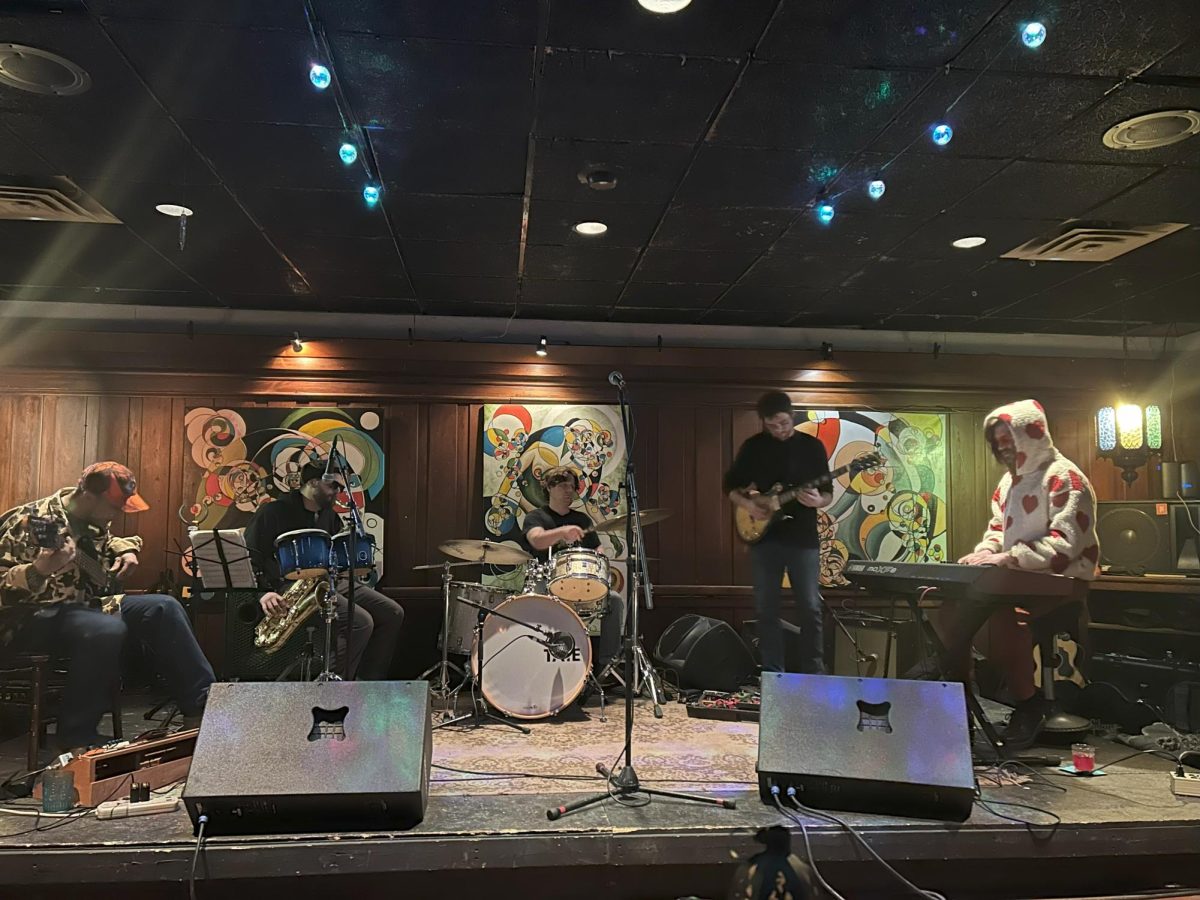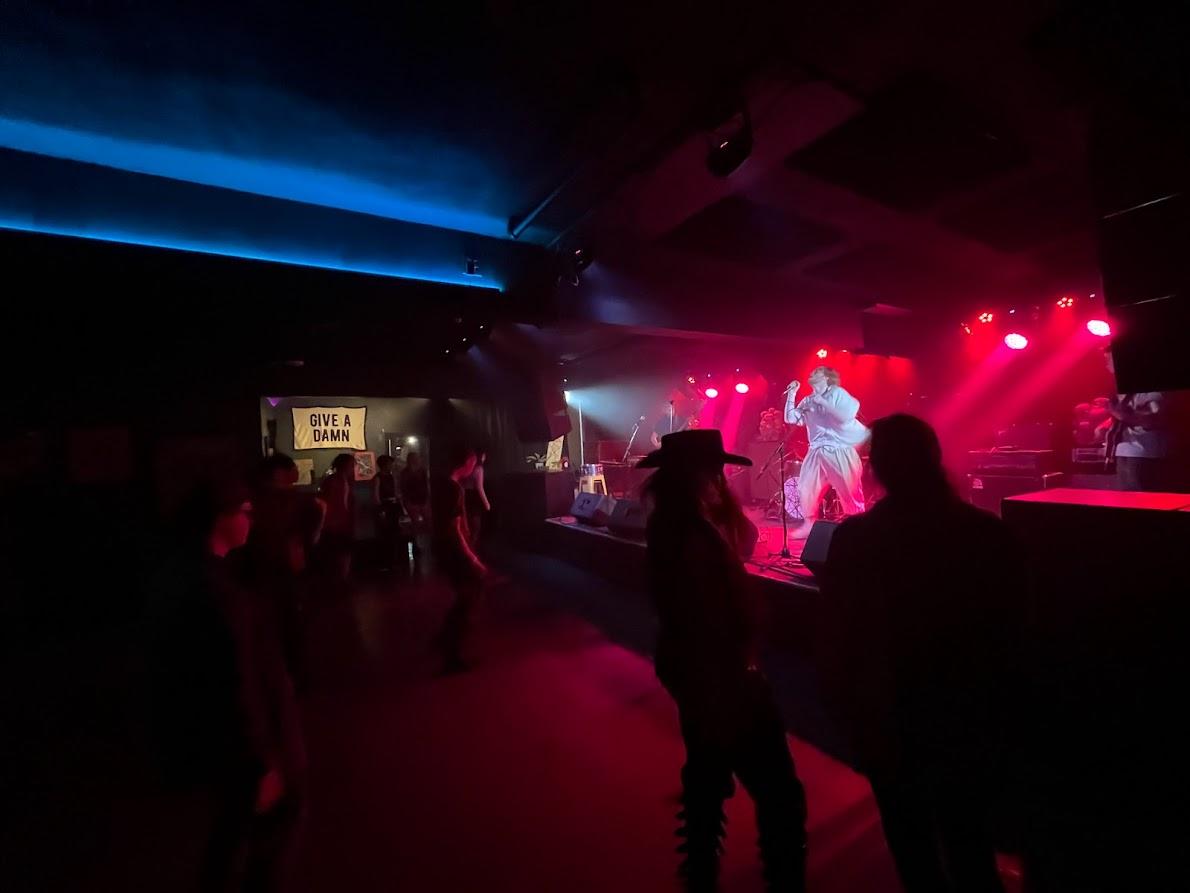
“Keep the records, keep the soul”
“Keep the records, keep the soul”
“Keep the records, keep the soul”
These are the last words the crowd heard before erupting into a cheer so electric it was almost as if the walls were shaking. In that moment, anyone who would have walked past the dimly lit box theatre would be confused by the overwhelming whistles of celebration as they set their sight on the small, dark, empty stage. Right before leading actor Jaquay Lamar Thomas returned for his well deserved praise.
In September, Ithaca’s own Kitchen Theatre Company welcomed the community back through its doors after a year and a half of exclusively virtual and outdoor productions. ‘A Boy and His Soul’ ran at the theatre from Sept. 14 to Oct. 3. This season is the Company’s 30th anniversary, and it started off without missing a beat.
https://youtu.be/CHvb-VwicFc
The Play
At its core, this play is about the powerful Black experience of cultivating joy through survival. It follows the story of Jay, a gay Black man, who has returned to his family home in West Philadelphia to clear it out before it’s sold. Upon finding his family’s old record collection, Jay is transported through the memories of his youth, coming of age, and coming out in the 1970’s and 80’s. Reconnecting with the music that held his family’s journey allows Jay to move forward with his own.
“I love how magical music is,” director Stephanie Weeks said in a press release. “With just the sound of a song, it brings us to our personal history of hope, joy, loss, grief. Through this piece we watch Jay journey through his deepest memories guided by soul music, as we are invited to explore our own memories and perhaps make new ones.”
The theatre was filled with classic soul, R&B, and Disco. The music that kept, and continues to keep, Black joy alive. The groovy tones of The Stylistics, the Isley Brothers, and Earth, Wind & Fire. The soft melody of the Ohio Players “Sweet Sticky Thing.” The tempo’s of James Brown and The Jacksons. From Diana to Donna to Aretha, there wasn’t a soul in the room who couldn’t feel just how special the moment was.
The Boy

Jaquay Lamar Thomas, the lone star of the show, has had a passion to entertain from before he can remember.
“I was kind of a natural born creative performer type,” Thomas said. . “So before I even knew it I was showing signs of an entertainer and my parents picked up on it when I was growing up. Fortunately, they were able to find the resources and a creative outlet. I was always performing.”
Thomas felt a special connection to this character and to this story. As a Black gay man, who grew up in a blue collar family that originated from Detroit, these tracks also carried him throughout the highs and lows of his life.
“The story parallels [to mine] a lot, because you know, as all of us have family members, and there are characters and personalities and it can be challenging at times, but the foundation of this family is love, and it always will be.”

The Kitchen Theatre Company hosted its first “Black Out Night” holding space for the Black students, artists, and patrons in the community to see the show. The Black Out Night was coined by Jeremy O Harris’s Brodway ‘Slave Play’ when the entire theatre was reserved for the Black community.
“It was really great to come out and see A Boy and His Soul,” Ithaca College senior John Turner said. “Something that stood out to me was how so many Black people from different generations came together. It was so joyful and so great to be in a space where we can come together and celebrate our commonality. Through everything we go through it was a relief to come together to sing, dance, and enjoy ourselves.”
Although it was just for one show, it was very important for viewers to have the option to experience this story in a predominantly Black audience, in the name of cultural healing. This isn’t just one man, or one community’s story. The experiences of family tension, pain, joy and love are themes in which each of us can relate.
“Theatre is church in a way, and it’s a place to come together to sit and listen,” Thomas said. “Although you may see an experience of a person that culturally you may not identify with, the messages can still be universal. With us still in the middle of this global pandemic so many things have shifted, and art and theatre is such an essential way for us to heal and to heal together, it is about connection.”

